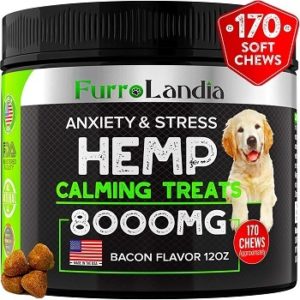
Whenever I am in the kitchen my dog is certain to be around, eagerly snagging up any food accidentally dropped or mercifully thrown his way. I soon discovered that my dog had quite the appetite for veggies, especially celery, but I worried if these snacks were actually any good for him. I decided to do some research of my own to decide if I could continue giving my dog celery treats(https://www.mybonesandbiscuits.com/can-dogs-eat-celery).
Verdict: Celery is a welcome addition to any dog’s diet!
Celery is a low calorie, heart healthy snack that can provide numerous benefits to both you and your canine. Buy fresh, organic celery for the best nutrition benefits and always remove the leaves and wash before enjoying.
Benefits
Full of vitamins and minerals
Celery is an excellent source of vitamins A, C, K, B6, riboflavin, and pantothenic acid. Celery also contains substantial amounts of the minerals potassium, magnesium, calcium, phosphorus, and sodium.
The feature vitamins, A and C, are antioxidants that will help keep your dog young and healthy. Pantothenic acid also works with vitamin C to help improve skin conditions.
Phosphorus, a mineral normally found in small amounts in fruits and vegetables, works with calcium to promote healthy teeth and bones. Magnesium is vital in several chemical reactions that affect muscle as well as nerve function, and will help ensure your dog’s entire body operates smoothly.
Heart healthy
Celery has no cholesterol, a low calorie count, high water content, high fiber, and is fat free. In other words, celery is extremely heart healthy.
Celery has been cited in several recent studies for its ability to lower blood pressure. Phthalides, a phytochemical in celery, relaxes the tissues of the artery walls, effectively increasing blood flow and reducing blood pressure.
Cancer fighter
A compound found in celery, apigenin, has been shown in research funded by the National Natural Science Foundation of China and America’s National Cancer Institute to significantly inhibit cancer cell growth.
In a study in peer-reviewed journal Molecular Cancer, apigenin was shown to inhibit pancreatic cancer cell growth, and scientists at the University of Missouri found that apigenin had the ability to shrink breast cancer tumors as well.
Apigenin can be found in parsley as well as many other fruits and vegetables, but is especially abundant in celery.
A great treat or toy
Simply remove roughage, then wash and cut the celery into small, bite size pieces in order to create a nutrient dense treat for your dog. Carry some around with you in a baggy so you can reward your dog’s good behavior on the go. Praising a dog’s good behavior or restraint from a bad one with a treat is always a more effective training tool than punishment.
Celery can also make for an inexpensive chew toy for your dog. Simply clean a stalk and leave the rest to your pup, the chewy vegetable will keep them busy for a while.
An entire stalk of celery is only around seven calories, so even two or three stalks a day will not affect your dog’s diet greatly. Although, if you have a small puppy or a dog with choking concerns, you may want to stick with chopping the celery into bite size pieces.
In addition to its great health benefits, Celery has been shown to help improve your dog’s breath as well!
Things to consider
Buy fresh, organic celery
Your dog will get the most nutrition if fed fresh, organic celery; pre-packaged or frozen celery is often absent of many of the nutrients that make celery such a great snack in the first place. Celery is also one of the vegetables hit the most by pesticides, so it is best to buy organic produce in order to avoid feeding your dog harmful chemicals.
Introduce new food gradually
Be aware that every dog’s stomach is unique, and just like humans’, are susceptible to a variety of food allergies and intolerances. When adding new treats or food to your dog’s diet, it is recommended to begin with a small amount, then to wait and see if your dog has any unpleasant reactions before continuing consumption.
Remember that moderation is key, and that treats should never be given to the amount where they make a substantial difference in your dog’s diet. Daily treats are fine, but they should not make up more than ten percent of your dog’s diet.
Lastly, always consult your veterinarian before making changes to your dog’s diet. Get ready to enjoy the benefits of celery!
You may also like:

